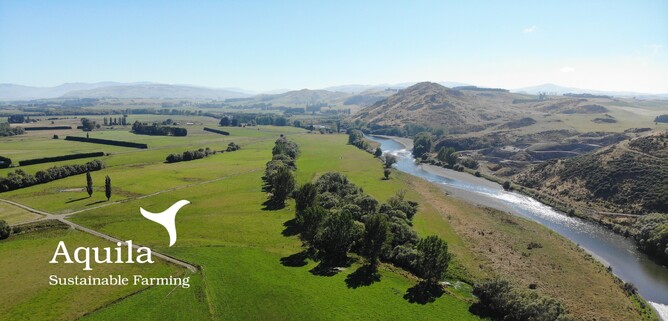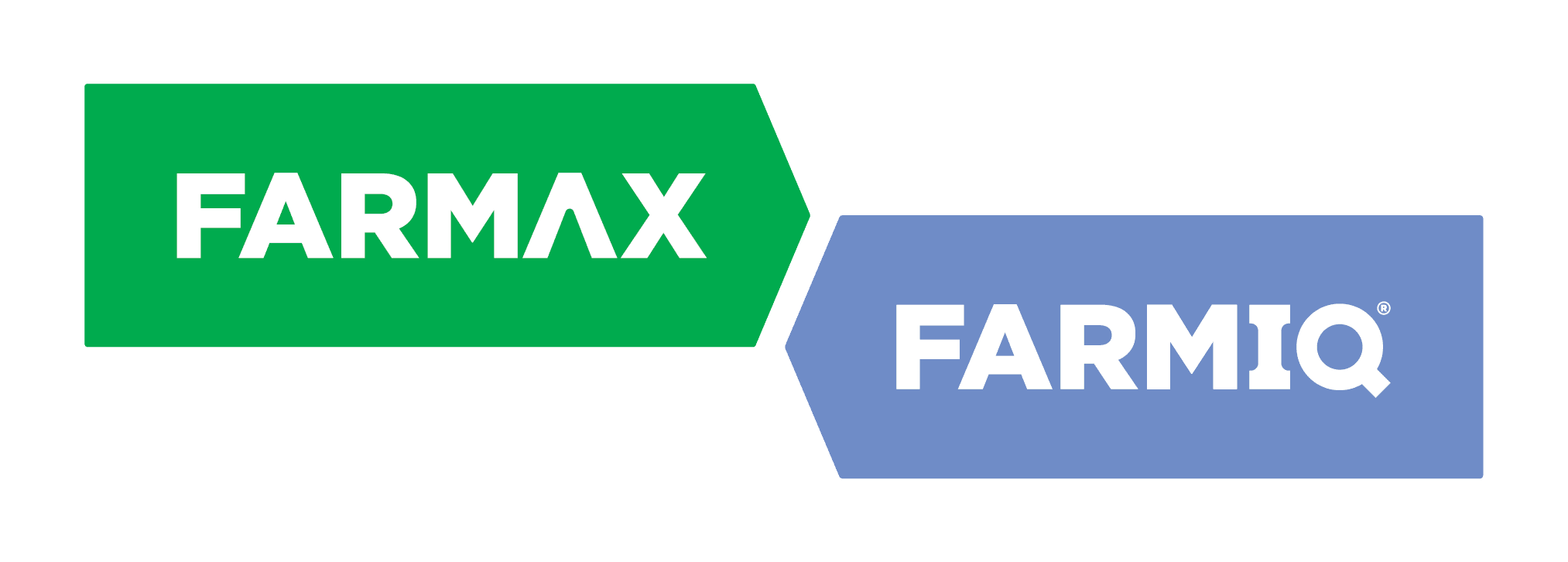Sprawled across the picturesque plains of Southland is Aquila Sustainable Farming (ASF): six dairy farms covering almost 3,000 hectares and home to 5,200 dairy cows. The ASF farms are certified organic to the EU standard, with stock numbers ranging from 400 – 2,200 across each farm.
The organisation is owned by Aquila Capital – one of Germany’s first alternative investment management companies, with the goal of creating environmentally sustainable investment solutions. In 2011 they purchased the Aquila dairy farms which now, collectively, are the biggest single supplier of organic milk in New Zealand.
Jess Craig oversees the six organic dairy farms as general manager, steering everything from KPIs and financials to recruitment and company culture.
“Aquila had a background in forestry and sustainable investments, but the farming piece came from some expertise they had within their team that recommended it as a strategy,” Jess explains.
“Of the billions of euros that Aquila Capital invest, our portfolio is a drop in the ocean; it's small scale for what Aquila is doing, but they’re all about sustainability and renewable energy and so it fits within their values.”
The move to organic
When Aquila Capital originally purchased the farms, they were all conventional dairy producers, with the conversion to organic becoming official in 2018. Jess says that when the decision was made to convert to organic they had to have a really targetedmanagement approach, and it took years of planning and consideration, especially in areas such as fertiliser, health treatments and feed.
“Justification of use is essential with organics and so we have to source organic fertilisers and we have to apply it in a really precise way; we do a lot of soil tests, and we work out exactly what the soil needs. We add only what's necessary to get optimum levels,” says Jess.
Animal health treatments were an important area that required rethinking, but ultimately the changes they’ve made have led to antibiotic use being significantly reduced, saving time and money:
“We’re testing every case of suspected mastitis and we only treat with a product when the machine tells us to; it's essentially a computer-generated vet script, so we're not applying whatever we think is necessary and hoping for an outcome.”
With few organic farms around the country, supplementary feed is also a challenge, as the Aquila team can’t simply go to the market and buy whatever additional feed they want. As a result, they have had to be really careful at how to best use and harvest their grass on farm.
Even lease blocks become an issue because there are not many organic blocks nearby in Southland and the process of converting a conventional farm to an organic dairy support block can take up to two years.
Because of the strict standards associated with organic farms, rich data and forward planning are key – and that’s where FARMAX comes in.
"Benchmarking allows us to see which of our
farms could benefit from practices implemented somewhere else, as well as which ones might
have some wins to share. Looking at other
organic farms puts that in a wider context and even more so with conventional farms."
- Jess Craig, Aquila Sustainable Farming
The more data the merrier
Thanks to a directive from the board, the Aquila team started using FARMAX three years’ ago.
Strahan McCullum, the operations manager of Glencairn (one of the organic farms operating three milking sheds),is the primary FARMAX user, ensuring all the essential farm information is entered every week.
He asserts that the more data you put into FARMAX, the more accurate the model and forecast becomes. The team performs weekly pasture walks and all of those numbers go into FARMAX, giving them greater insight into what might be coming up on farm.
“We take our historic files and we roll them over making updates where needed and then we monitor, we look at them and we keep updating them to get our active monitoring files for each of the farms,” explains Strahan.
“[Spring growth rates] are two weeks earlier than last year. We can see if our covers are starting to lift and if it will affect the quality of our pasture going to the milking cows, then we can take out even larger chunks or more frequent chunks of harvesting supplements,” he says.
FARMAX is particularly valuable when it comes to planning pasture and supplement use, allowing the team to finely manage and predict exactly what the animals are going to need.
Jess elaborates: “If we have to go to the market, we struggle to buy quality, high ME, organic supplement; it’s often a fair way away from where we are and the cost of transport now is putting a lot of that out of our reach.”
She says this year they have finally got to the spot where they are almost 90% reliant on internal high ME supplement, over which they have full control.
“Whether it's full feeding during the winter or going into milking cows, it doesn't matter – the quality is there and we benefit through liveweight gains, reproduction and milk production.”
Jess and Strahan appreciate that FARMAX is not the easiest model to use, but the sheer amount and quality of data you get out of it is invaluable – even more so when you’ve got partners who can really squeeze all the juice out of it.
“FARMAX is a fairly complicated system…but I think when you’ve got everything lining up and you’ve got good support in the background I’d say that’s pretty key. Then you can get good outcomes from it,” says Strahan.
Benchmarking with BakerAg
Earlier this year, Jess and Strahan made the decision to use FARMAX through BakerAg and the FARMAX Dairy Systems Modelling (DSM) program.
FARMAX DSM is an online service that allows users to compare performance for a range of KPIs in real time.
“I really enjoy and get a lot of knowledge out of seeing how our farms are performing against each other, against other organic farms and then against other conventional farms,” says Jess.
“Benchmarking allows us to see which of our farms could benefit from practices implemented somewhere else, as well as which ones might have some wins to share. Looking at other organic farms puts that in a wider context and even more so with conventional farms.”
Every month, Angela Tanner, a dairy consultant at BakerAg, supports the Aquila team with inputting their farm data into FARMAX and that data automatically flows through into the DSM.
“It’s good to have another set of eyes to go through because you can get engrossed in FARMAX and look at it and look at it and then miss something completely which Angela will flag because she's in and out of it all the time,” says Strahan.
Angela validates the data, ensuring everything is accurate, then produces monthly reports which support the Aquila team in making timely decisions.
With payouts low and costs high, Angela asserts it is more important than ever to focus on the financial elements: “Increasing the focus on the financials this season is really important. The goal posts have shifted. FARMAX DSM gives immediate understanding of the implications and this means we can give advice and support in a timely way.”
She believes the way in which Aquila and BakerAg work together is vital: it enhances data accuracy, enables up-to-date modelling, there’s timeliness for those using the tool and it creates a space where value can be added – not only in terms of FARMAX modelling, but in respect to the wider business and what they want to achieve.
It’s also useful to get the whole team involved and invested in using a system like FARMAX DSM.
“It is important that the people supplying the information (farm managers) are fully engaged and understand the process and purpose. They provide the data, so they need to be getting something useful in return,” says Angela.

